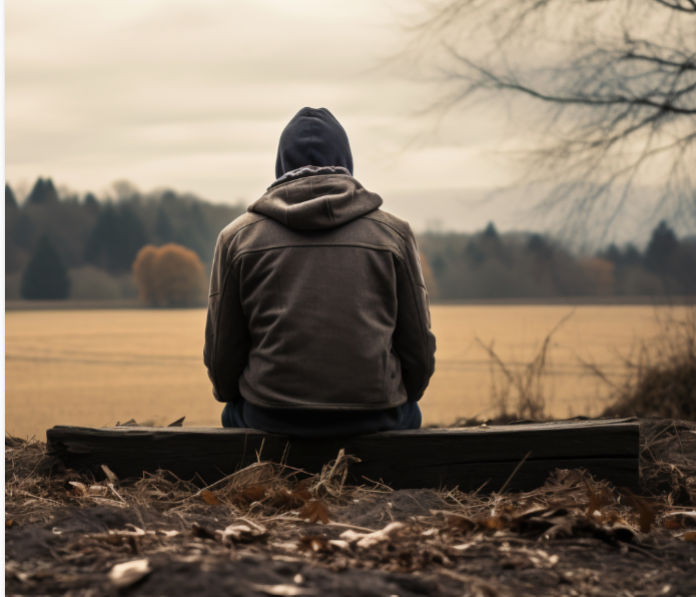“For those grappling with loneliness, the holidays are uniquely cruel”
A COLUMN: By: Johanna Elattar
As the holidays approach, the world seems to shimmer with magic. Twinkling lights illuminate homes, carols echo through frosty air, and bustling stores overflow with gifts meant to spark joy. It’s a season painted with cheer, love, and togetherness. Yet, for many, the holidays cast long shadows, starkly highlighting absences—of family, friends, or even the basic stability that others take for granted.
Behind the glittering façade lies a sobering truth: the holidays, for all their celebration, can magnify the ache of loneliness, the weight of poverty, and the disconnection pervasive in modern life.
The commercialization of compassion surrounds us. Charity appeals featuring heartbreaking imagery of suffering—starving children, homeless families braving bitter cold—flicker across our screens, imploring us to “give back.” But these messages, repeated year after year, risk desensitizing us. Donations become reflexive clicks, devoid of deeper reflection, while systemic issues fueling suffering go unaddressed. Generosity risks becoming another chore, another tick on a to-do list.

Ironically, what’s celebrated as a season of giving often amplifies selfishness. Families focus on perfecting their traditions, filling wish lists, and preserving curated memories. Meanwhile, the struggles of others fade into the background, eclipsed by consumerist distractions. Performative kindness—a selfie at a food drive or a tweet about donating—sometimes substitutes for genuine compassion. This disconnect leaves society’s most vulnerable further marginalized, their pain unseen in a season meant to uplift.
For those grappling with loneliness, the holidays are uniquely cruel. Social media becomes a minefield of staged joy, each glowing post a reminder of what’s missing. An empty chair at the table or an undecorated tree can feel like an indictment of failure, even though loneliness is not a flaw but a human signal—a natural call to connect. Researchers suggest loneliness serves as an emotional nudge, reminding us to seek meaningful engagement. Recognizing this can foster empathy, especially during times of heightened isolation like the holidays.
Yet, loneliness is a taboo topic, wrapped in stigma that prevents honest conversations. Elderly individuals forgotten in nursing homes, homeless people ignored on city streets, and estranged family members spending Christmas alone—these realities disrupt the season’s narrative of universal joy. Ignoring them deepens the divide between those who celebrate and those who endure.
Modern life compounds this isolation. Despite the connectivity offered by technology, many feel lonelier than ever. Meaningful face-to-face interactions are dwindling, replaced by shallow exchanges that fail to nourish the soul. The lingering effects of social traumas, such as the COVID-19 pandemic, have only widened this gap, leaving many struggling to rebuild relationships or find normalcy. For these individuals, the holidays are not a time of joy but of reckoning with fractured bonds and unmet expectations.
Society’s cultural pressures during this season don’t help. Holidays idealize togetherness and abundance, creating a sense of “social dissonance” for those who don’t fit the mold. People experiencing loss, financial struggles, or emotional turmoil are left feeling excluded, their realities clashing painfully with the season’s glossy ideals.
What can we do to transform this season into one of genuine connection? Acts of kindness should transcend monetary donations, encompassing actions that foster real bonds. Share a meal with someone who might otherwise eat alone. Take time to visit an elderly neighbor or offer support to a struggling parent. These seemingly small gestures hold profound power, creating reciprocal kindness that benefits both giver and receiver. Psychology underscores the importance of such reciprocity—it rebuilds trust, strengthens communities, and alleviates disconnection.

We must also reconsider how we approach the holidays. The true spirit of this season lies in collective compassion, not individual gratification. Advocacy for systemic change—addressing housing insecurity, food deserts, and mental health care—must accompany personal acts of kindness. Together, we can shift the narrative from consumerism to community, from fleeting generosity to sustained impact.
As you navigate the season, reflect not only on what brings you joy but also on how you can uplift others. Loneliness, hardship, and inequality don’t pause for the holidays, but with empathy and intention, neither does the opportunity to make a difference. Let’s redefine what it means to celebrate—by turning joy into action and isolation into connection. Only then can the holidays truly embody their promise of light in the darkness.










